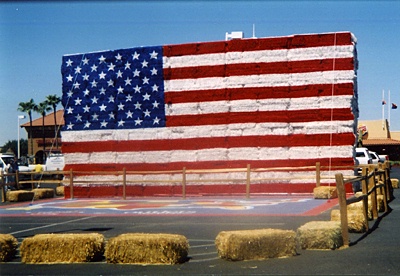All Nonfiction
- Bullying
- Books
- Academic
- Author Interviews
- Celebrity interviews
- College Articles
- College Essays
- Educator of the Year
- Heroes
- Interviews
- Memoir
- Personal Experience
- Sports
- Travel & Culture
All Opinions
- Bullying
- Current Events / Politics
- Discrimination
- Drugs / Alcohol / Smoking
- Entertainment / Celebrities
- Environment
- Love / Relationships
- Movies / Music / TV
- Pop Culture / Trends
- School / College
- Social Issues / Civics
- Spirituality / Religion
- Sports / Hobbies
All Hot Topics
- Bullying
- Community Service
- Environment
- Health
- Letters to the Editor
- Pride & Prejudice
- What Matters
- Back
Summer Guide
- Program Links
- Program Reviews
- Back
College Guide
- College Links
- College Reviews
- College Essays
- College Articles
- Back
Does the Mayflower Compact have any effect on the Wall of Separation.
The Pilgrims did not imply a wall of Separation of Church and State in the Mayflower Compact. The origin of the phrase came about after the Pilgrims wrote the Compact. They drafted the Compact to restore unity.
The origin of the phrase came many years after the Mayflower Compact. In the case Everson v. Board of Education, the Supreme Court ruled. “The First Amendment has erected a wall between church and state. That wall must be kept high and impregnable. We could not approve the slightest breach.” The wall that the Court talks about is the one that Jefferson communicated to the Danbury Baptists in 1802. In the letter that Jefferson received from the Baptists they said, “But sir, our constitution of government is not specific… [T]herefore what religious privileges we enjoy (as a minor part of the State) we enjoy as favors granted, and not as inalienable rights.”
His reply to this letter is as follows. “Believing with you that religion is a matter which lies solely between man and his God, that he owes account to no other for his faith or his worship, that the legislative powers of government reach action only, and not opinions, I contemplate with sovereign reverence that act of the whole American people which declared that their legislature would make no law respecting an establishment of religion, or prohibiting the free exercise thereof, Thus building a wall of separation between Church and State.”
Understanding that the Phrase was coined after the Pilgrims wrote the Compact it did not affect the writing of their document. Jefferson’s works did not affect the writing of the Compact but the Pilgrims were aware that the government could interfere with their beliefs. And that one day the Wall of Separation might be a one way restriction where the Government would not be permitted to interfere with the Church.
The Pilgrims drafted the Mayflower Compact because they wanted unity with in the future settlement. Bradford, a leader in the Puritan community said,” This was occasioned partly by the discontented and mutinous speeches that some of the strangers amongst them had let fall.” The Puritans drafted the Compact because they wanted peace within the community.
The Pilgrims knowing that the other settlers could interfere with them mentioned the name of God in the Compact but did not mention that there should be a Wall of Separation of Church and State excluding God from the Government. “Having undertaken for the Glory of God and advancement of the Christian Faith, and the Honor of our King and Country, a voyage to plant the first Colony in the northern parts of Virginia…” The Pilgrims mentioned that the settlement was for the glory of God, but they did not imply a complete wall of separation.
The pilgrims did not imply a complete “Wall of Separation” in the Mayflower Compact. That phrase was crafted by Jefferson in 1802 in a letter to the Danbury Baptists. They drafted the Compact so that they could restore unity.

Similar Articles
JOIN THE DISCUSSION
This article has 0 comments.
